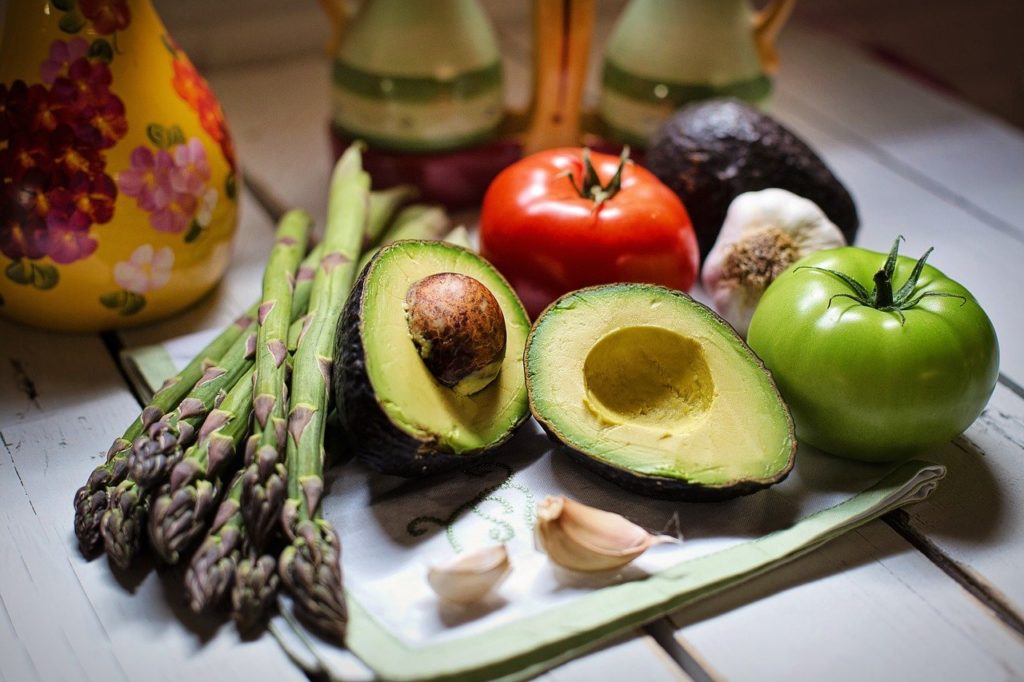by Laura K. Secor

Hello my friends,
I am weaving for you a quilt of modern western poetry and ancient eastern religion, and recently we have started looking at the way Jane Hirshfield’s Buddhism shows a Taoist influence. I realize this can all become a little abstract, a little hard to grasp in the hand. And besides, this is Thanksgiving! So we’re taking a side venture this month, into food, specifically into Dr. King’s Refrigerator. I’ve only recently discovered the writer Charles Johnson, and he’s a treasure. I found out yesterday that he’s a long-time Buddhist, which explains why his fiction was included in Best Buddhist Writing 2007. He wrote a piece called “Dr. King’s Refrigerator”, from which I offer you this excerpt:
Martin Luther King, Jr. once had a revelation along these lines. One evening, waking peckish, he went down to his kitchen for a midnight snack.
He clicked on the overhead light, then drew open the door to the refrigerator. Scratching his stomach, he gazed – and gazed – at four well-stocked shelves of food. He saw a Florida grapefruit and a California orange. On one of the middle shelves he saw corn and squash, both native to North America, and introduced by Indians to Europe in the fifteenth century through Columbus. To the right of that, his eyes tracked bright yellow slices of pineapple from Hawaii, truffles from England, and a half-eaten Mexican tortilla. Martin took a step back, cocking his head to one side, less hungry now than curious about what his wife had found at a public market, and stacked inside their refrigerator without telling him.
He began to empty the refrigerator and heavily packed food cabinets, placing everything on the table and kitchen counter and, when those were filled, on the flower-printed linoleum floor, taking things out slowly at first, his eyes squinted, scrutinizing each item like an old woman on a fixed budget at the bargain toble in a grocery store. Then he worked quickly, bewitched, chuckling to himself as he tore apart his wife’s tidy, well-scrubbed, Christian kitchen. He removed all the beryline olives from a thick glass jar and held each one up to the light, as if perhaps he’d never really seen an olive before, or seen one so clearly. Of one thing he was sure: No two olives were the same. Within fifteen minutes Martin stood surrounded by a galaxy of food.
From one corner of the kitchen floor to the other, there were popular American items such as pumpkin pie and hot dogs, but also heavy, sour-sweet dishes like German sauerkruat and schnitzel right beside Tibetan rice, one of the staples of the Far East, all sorts of spices, and the macaroni, spaghetti, and ravioli favorited by Italians. There were bricks of cheese and wine from French vineyards, coffee from Brazil, and from China and India black and green teas that probably had been carried from fields to faraway markets on the heads of women, or the backs of donkeys, horses, and mules. All of human culture, history, and civilization lay unscrolled at his feet, and he had only to step into his kitchen to discover it. No one people or tribe, living in one place on this planet, could produce the endless riches for the palate that he’d just pulled from his refrigerator. He looked around the disheveled room, and he saw in each succulent fruit, each slice of bread, and each grain of rice a fragile, inescapable network of mutuality in which all earthly creatures were codependent, integrated, and tied in a single garment of destiny. He recalled Exodus 25:30, and realized that all this before him was showbread. From the floor Martin picked up a Golden Delicious apple, took a bite from it, and instantly prehended the haze of heat from summers past, the roots of the tree from which the fruit had been taken, the cycles of sun and rain and seasons, the earth, and even those who tended the orchard. Then he slowly put the apple down, feeling not so much hunger now as a profound indebtedness and thanksgiving – to everyone and everything in Creation. For was not he too the product of infinite causes and the full, miraculous orchestration of Being stretching back to the beginning of time?
At that moment his wife came into the disaster area that was their kitchen, half asleep, wearing blue slippers and an old housecoat over her nightgown. When she saw what her philosopher husband had done, she said, Oh!
Isn’t that marvelous? I can just see all the food laid out on the table, counter and floor, and Martin’s deep delight and sense of completion and fullness, and then his poor wife comes in and sees utter chaos. That’s the moment that crystalizes the story for me. Buddhists talk often about the moment after enlightenment. You have this glorious moment, the fullness of appreciation for the unity of the universe, and then what? Then you have to clean up the kitchen before your wife will let you come back to bed.
Happy Thanksgiving!
